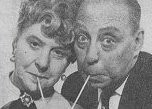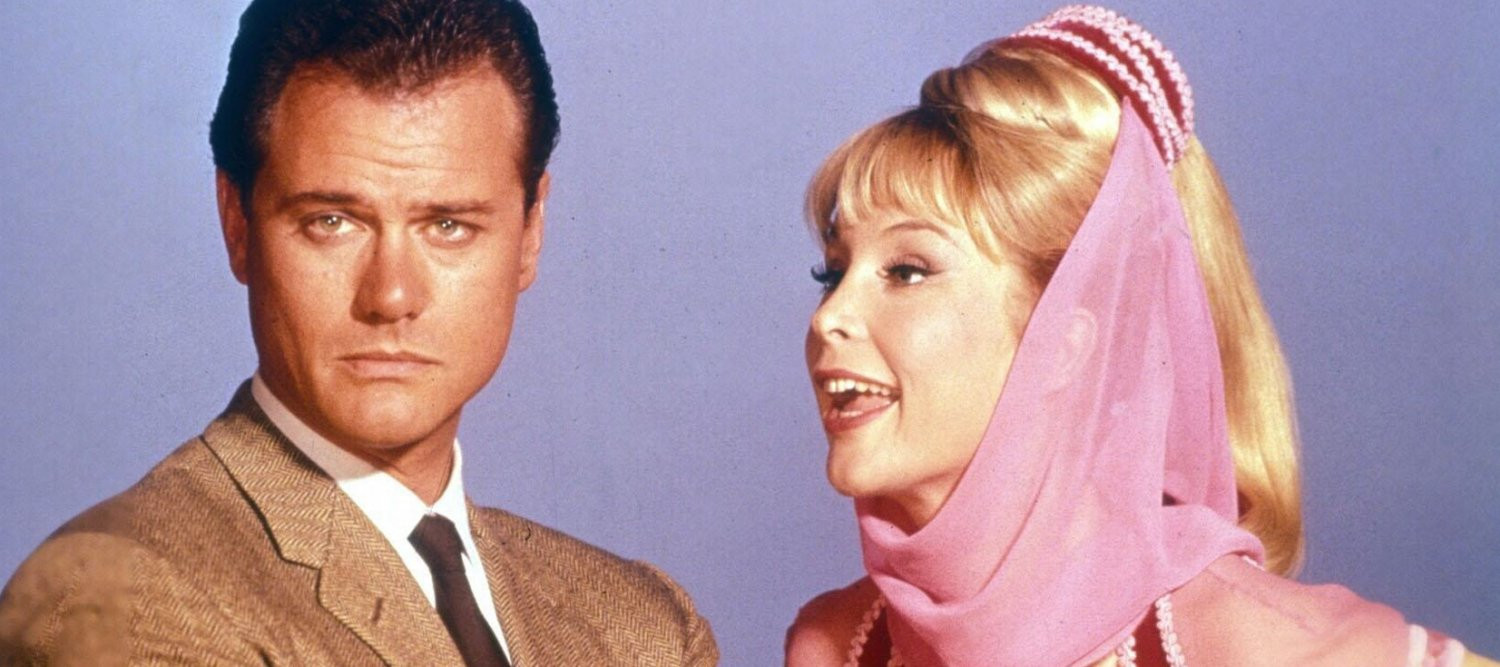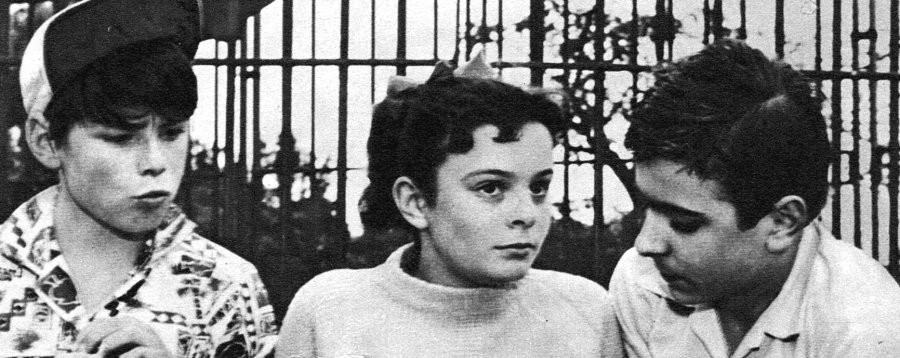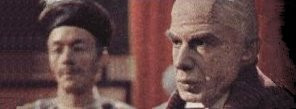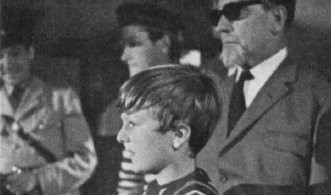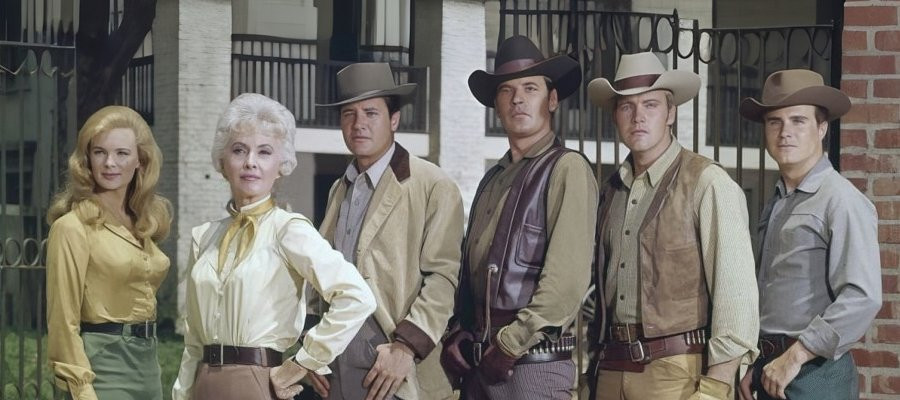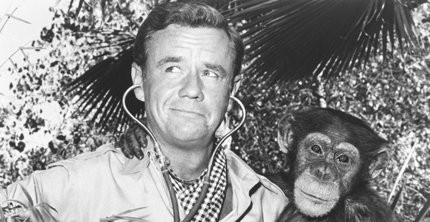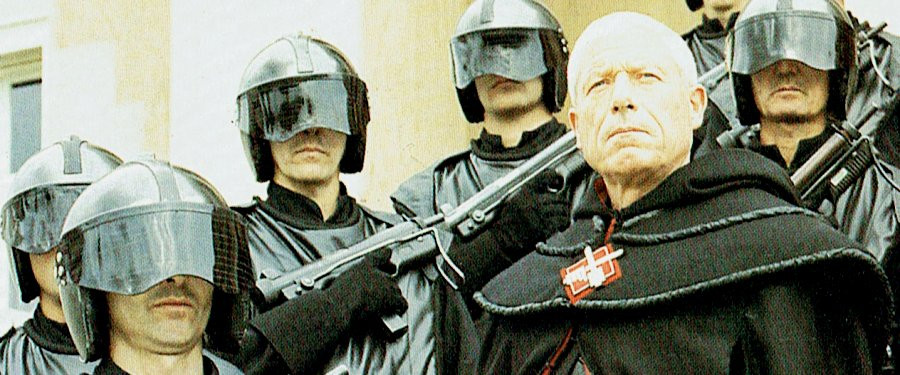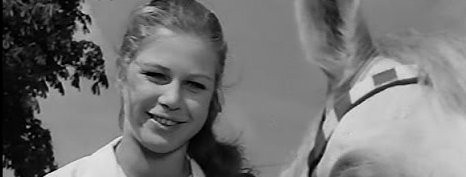
The White Horses
1965 - Serbia, GermanyThis enchanting children's series was made in 1965 as a collaboration between RTS (Radio Television Serbia) of Belgrade and BR-TV of Munich. The White Horses followed the adventures of Julia, a fifteen-year old girl, played by Helga Anders, who leaves Belgrade to spend a holiday with her uncle Dimitri (Dimitrij in the German version, played by Helmuth Schnider), on his stud farm where, with the help of head groom Hugo (Franz Muxeneder), he trains valuable white Lipizzaner's.
The White Horses was based on a series of books, the first 'Ferien In Lipizza' by Yugoslavian author Vladimir Carin, was published in 1962 and a short film and two further novels followed. Vera Von Albert, a producer for Sudwestfunk GmbH television in Baden Baden, who, in 1964 was on the lookout for new material for television, thought that the stories would make ideal family viewing, although they were completely rewritten by Hanns Wiedmann, Vladimir Carin, and Gitta von Cetto for all 13 episodes.
The series, which was filmed in monochrome in Yugoslavia, was originally shown in Germany as Ferien in Lipizza (where Julia is called Julka) and in Slovenian it is known as Počitnice v Lipici. It didn't reach the UK until 1968 when the BBC began broadcasting a dubbed English language version at 5.20pm on Monday afternoons immediately following Blue Peter. Since its first showing it has developed something of a cult reputation among fans, especially those in the UK.
In the opening story, Boris, one of the horses is stolen by gypsies who dye his white coat brown so that no one will recognise him. Julia and Hugo set off to find Boris and upon his recovery an affinity is formed between girl and horse thus setting the scene for the 13 25-minute adventures that followed.
Although the series still exists on film (in Germany) the English soundtrack version had been lost for many years until audio tapes of 12 of the 13 episodes were located, having been recorded by a fan on reel-to-reel tape (only episode 3 is absent). Most people remember the evocative theme song, 'White Horses,' written by Michael Carr and Ben Nisbet and sung by Irish singer Jacky, which reached number 10 in the pop charts in April 1968 and was (in the early 2000's) used on a TV commercial prompting a new generation of fans to scan the internet trying to find a copy to download. Under the name Jackie Lee the same singer had another TV theme song hit in 1971 with Rupert. Although the White Horses theme was only recorded for the English version, it became so popular that it was eventually adopted worldwide, and has been covered by numerous artistes, the most recent by Mari Wilson on her album Pop Deluxe in 2016.
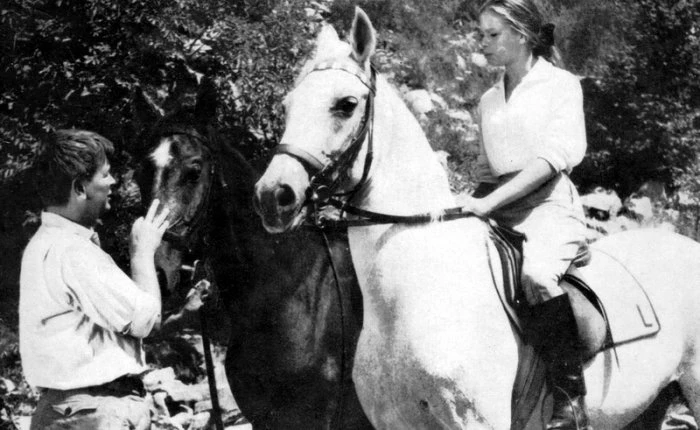
The star of the series (horses not included), Helga Anders, was born in Austria on 11 January 1948. Her parents divorced when she was two years old and her mother took her to Bielefeld, a city in the Ostwestfalen-Lippe Region in the north-east of North Rhine-Westphalia, Germany, where a teacher, recognising she had a talent, encouraged her to take up acting. Anders made her stage debut at the age of eight and at twelve years old she made her big screen debut. She appeared in the West German made TV series Der Forellenhof from 1965 to 1966, at which time she was offered a number of different roles but opted to appear in White Horses. She continued to have a successful career in television up until the 1980s when, tragically, addictions to drink and drugs and several attempts at suicide bought her career to all but an end. She passed away in March 1986 from heart failure. She was 38 years old.
No doubt influenced by the popularity of The White Horses and wanting to repeat its success with a British version, in 1971, Yorkshire Television teamed up with TV München in West Germany to adapt Monica Dickens' 1963 novel 'Cobbler's Dream' - in which a young girl arrives to stay on a farm run by her uncle which is a retirement home for old or unwanted horses. Follyfoot was one of the most enchanting television programmes from the 1970s as well as one of the most ambitious children's series undertaken by an Independent Television company. It also had a great opening song, The Lightning Tree performed by The Settlers became a minor hit when it broke into the charts in October 1971.
Seen this show? How do you rate it?
Seen this show? How do you rate it?
Published on February 12th, 2019. Written by Laurence Marcus for Television Heaven.



